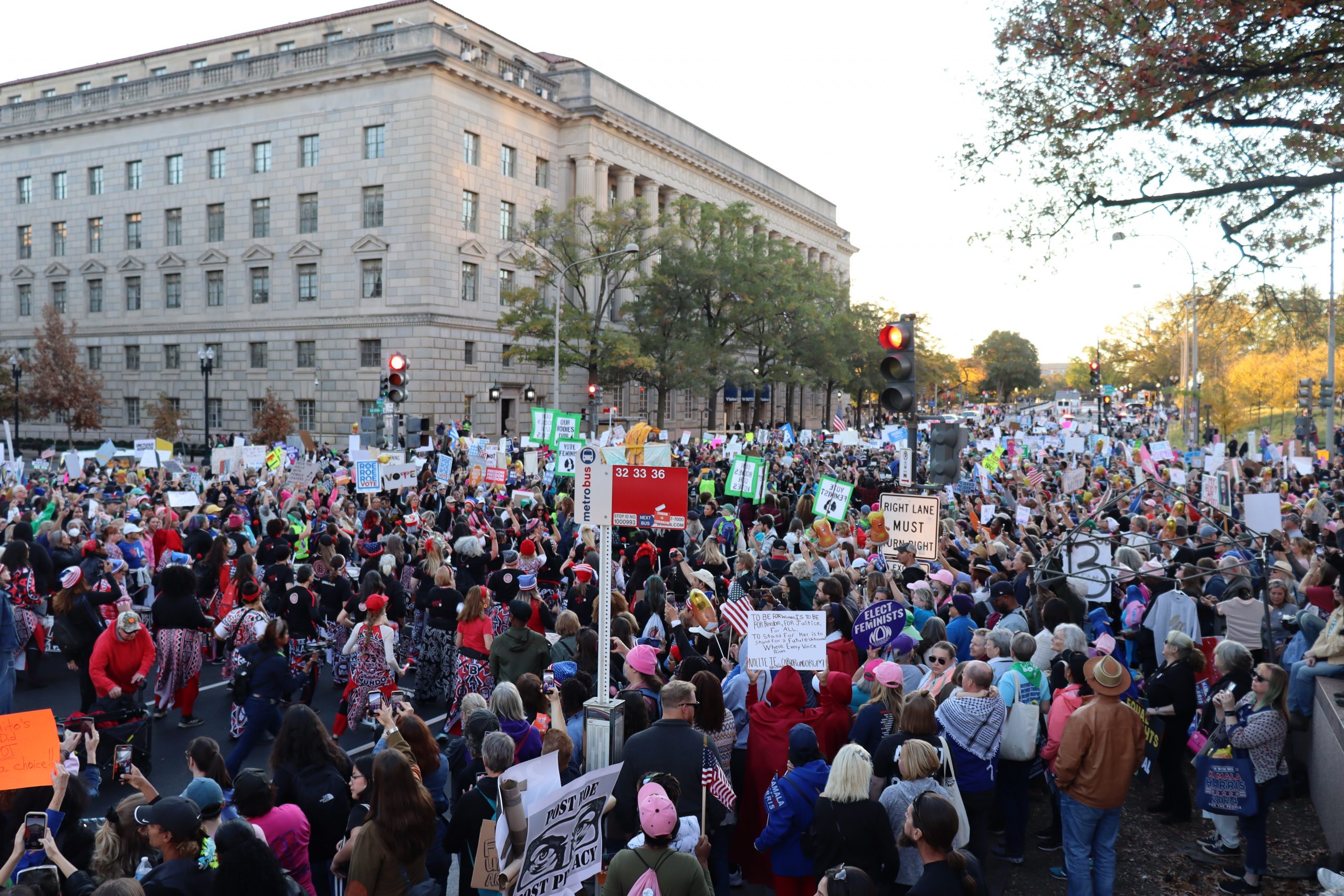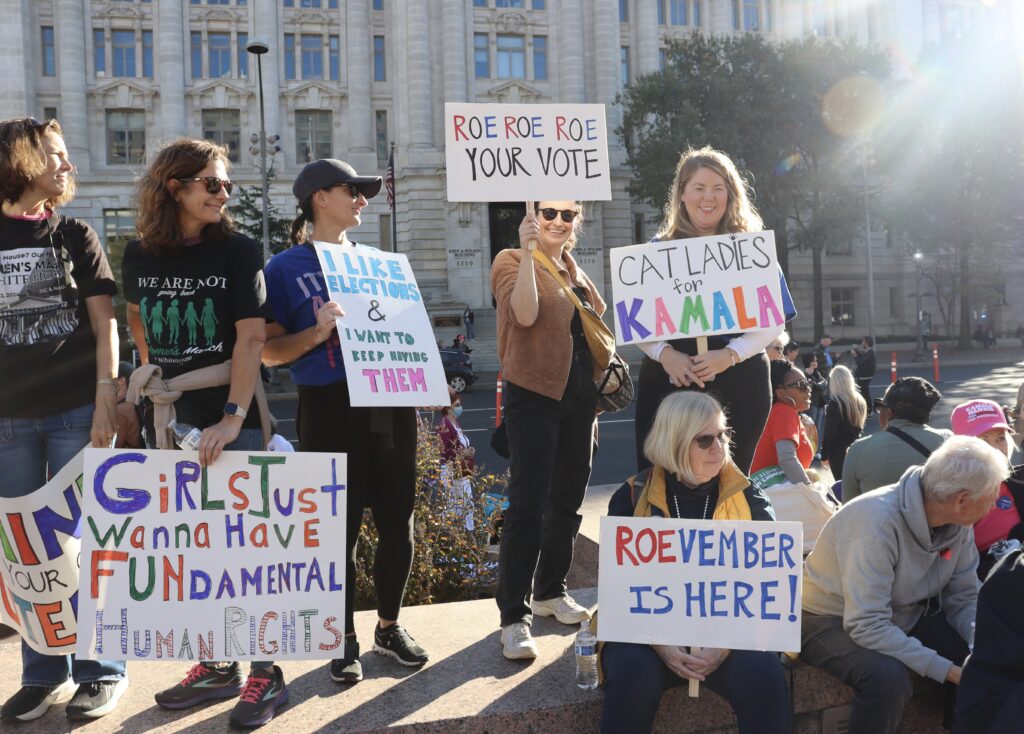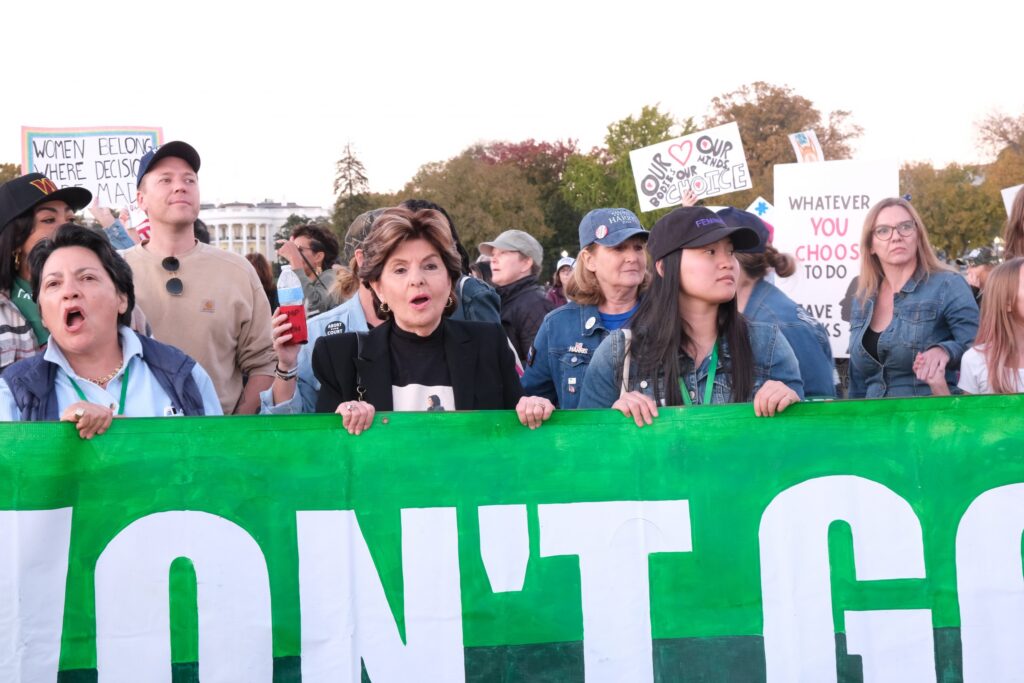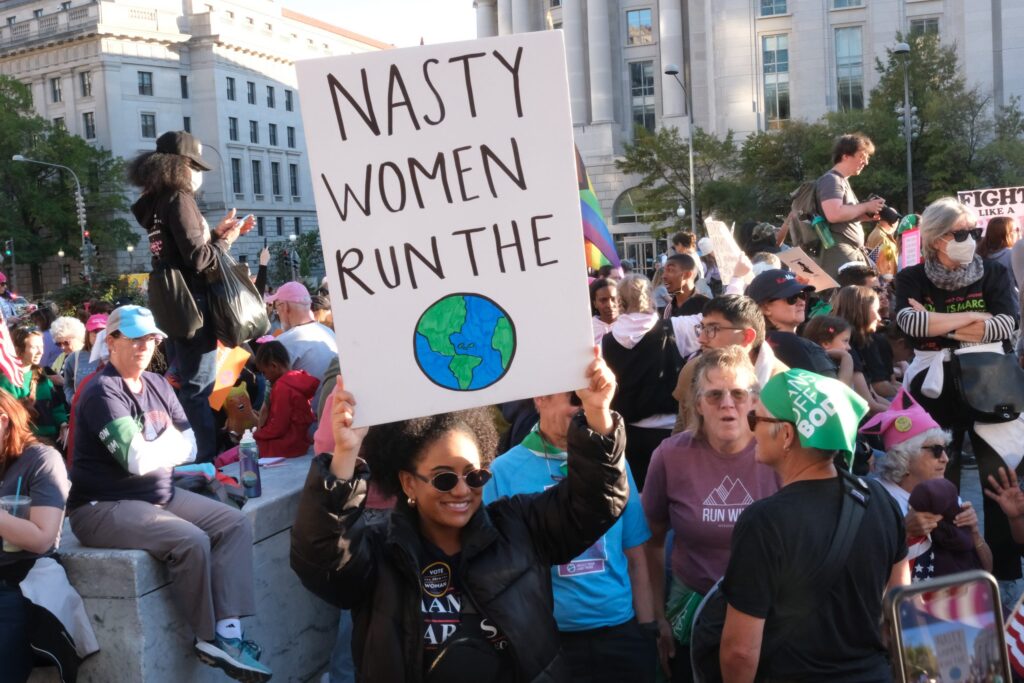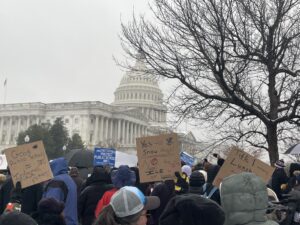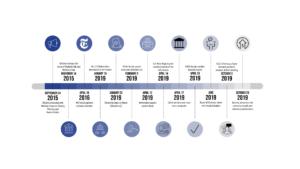Days before the Nov. 5 presidential election, thousands gathered at Freedom Plaza for the Women’s March, which has happened annually since 2017. This year, demonstrators rallied on Nov. 2 in support of Vice President Kamala Harris, packing Pennsylvania Avenue before marching to the Ellipse, which overlooks the White House. Organizers estimated that 10,000 people participated in the march.
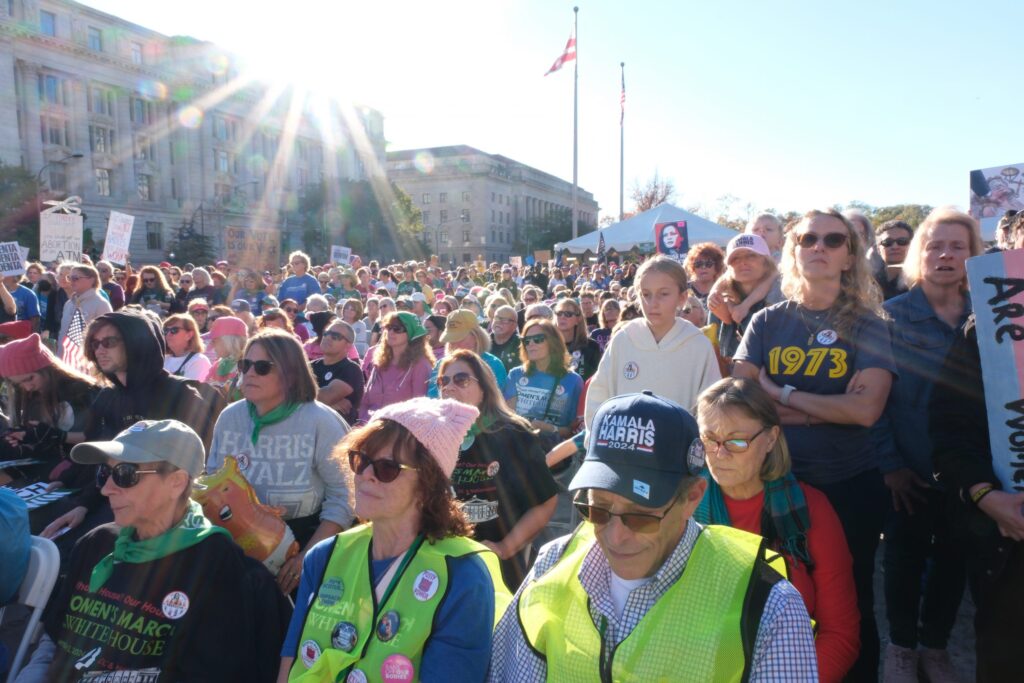 Photo by Sydney Carroll
Photo by Sydney Carroll
The Women’s March began in 2017 as a response to former President Donald Trump’s election. Activists organized rallies on Jan. 21, 2017, the day after Trump’s inauguration. While D.C. was home to the main protest, concurrent rallies were held across the country and on seven continents—including Antarctica. An estimated 450,000 people attended the first march in D.C., and between three and five million people participated in rallies across the country, making it, at the time, the largest single-day protest in U.S. history.
Ahead of Saturday’s march, the Voice spoke to Rachel Carmona, the executive director of the Women’s March. Carmona is also the founder of Women’s March Win, the organization’s Political Action Committee that endorses and financially supports feminist candidates.
For Carmona, the critical juncture the U.S. faces in the upcoming election—as the country chooses between the would-be first female president and a man with almost 30 sexual misconduct allegations—made this the perfect time to hold another march.
“Our country is in a difficult place where people are looking inward,” she said. “And so it’s our role as a movement to pull people out into community, into a bigger ‘we,’ so that we understand that our vote matters, not just for us, and not just for our futures, but for the futures of our neighbors and our larger community, because all of our lives are inextricably linked.”
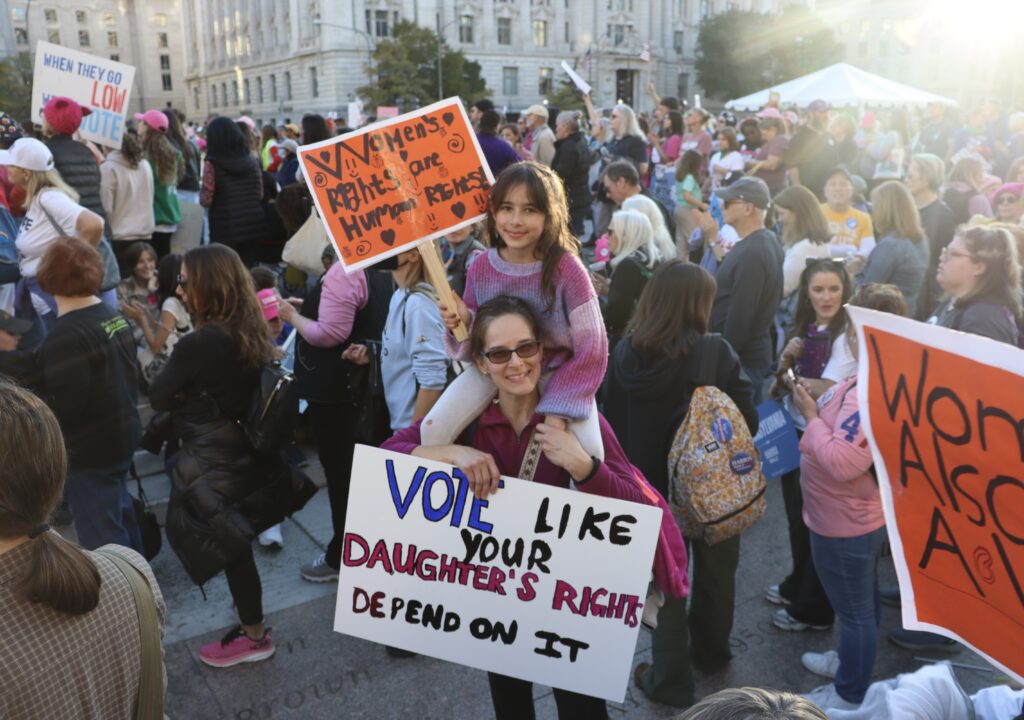 Photo by Katie Doran
Photo by Katie Doran
The rally included over a dozen speeches by activists from D.C. and beyond.
Hope Khodaei (SCS ’27) began the rally with a land acknowledgement. Khodaei is a member of the Piscataway Conoy Tribe of Maryland. Khodaei discussed the ways in which European colonization disrupted matrilineal and non-patriarchal traditions of Native culture. .
“Most Native American nations follow the mother’s lineage—they’re a matrilineal society. Unlike the patriarchy of the colonizers, Indigenous women have the right to sovereignty, especially over their lives, bodies, and with economic independence in marriage and roles in tribal authority,” she said. “Non-native women learn a great deal from the Native American women’s rich history in governance and autonomy.”
The next speaker was Frankie Seabron, program manager at Harriet’s Wildest Dreams, a D.C.-based Black-led abolitionist organization. Seabron spoke about the ways in which issues like police brutality, mass incarceration, income inequality, and climate change disproportionately affect the lives of the country’s most marginalized.
“These are not abstract issues, these are real forms of violence that affect our lives. They are forces that keep Black, queer, disabled and other marginalized communities from true liberation,” Seabron said. “Our liberation is tied to one another. It doesn’t stop today. It doesn’t stop at that vote box. Y’all need to be organizers in your communities after November 5.”
Like 2017’s march, the 2024 Women’s March had contingents across the country, with events in hundreds of cities. Many of these included efforts like phone and text banking to mobilize voters ahead of the election.
“Right now we are in the home stretch of the election,” Carmona told the Voice. “Our goal is to celebrate hard work and get people fired up, keep them engaged, keep them in community, get some gas back in the tank so that we can get back out there and have the conversation, knock doors, and do everything that we can until the very last minute, make sure everyone is excited to vote and to win—for women, and for us all in November.”
Attendees of D.C.’s march came from across the country. Mary Ann Stewart drove from Kentucky with her family to attend the march.
“I thought it was important to be here for this particular election, this particular moment in history, where our rights are being cut back,” Stewart told the Voice.
Many speakers highlighted reproductive justice as a primary issue in this year’s march and election. Since the overturn of Roe v. Wade in 2022, many states have restricted access to abortion, and reproductive rights have become a central campaign issue. Now, 13 states have a total abortion ban, and 28 more have restrictions based on gestational duration.
“Our lives and the lives of our daughters and our mothers and our sisters and our aunts and teenage girls whom we have never met are on the line,” Gloria Allred, a high-profile attorney famous for taking controversial cases on gender issues, said in her speech.
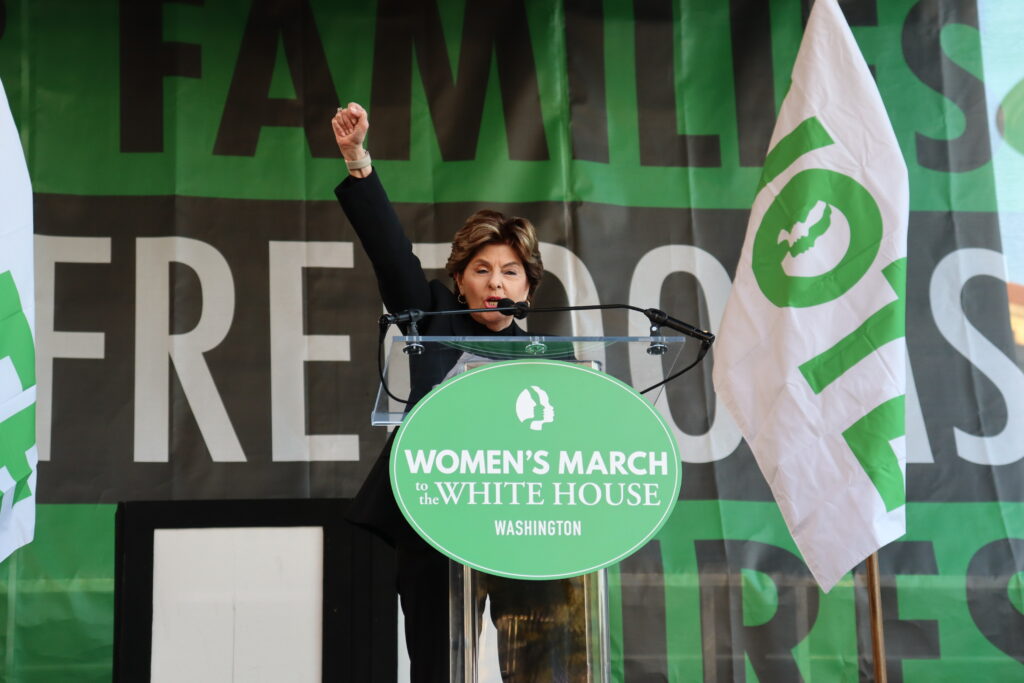
Photo by Katie Doran Gloria Allred speaks at the rally.Photo by Katie Doran
Allred also spoke about her own abortion in the 1960s.
“Are we willing to go back to the days when women like me almost died from unsafe and illegal abortions?” Allred asked. The crowd chanted “no” in response.
In some states, abortion restrictions have prevented people from getting life-saving abortion or miscarriage care, leading to deaths. Monica Simpson, executive director of SisterSong, an advocacy organization for reproductive justice, named Amber Thurman, Candi Miller, Josseli Barnica, and Nevaeh Crain as examples in her speech.
“Their deaths were 100% preventable, and they should still be here today,” Simpson said. “It is clear that bodily autonomy and our human right to self-determination is on the line.”
The march also drew several anti-abortion counterprotesters, some of whom carried large crosses and gave anti-abortion speeches while walking through the crowd.
Aside from abortion, speakers highlighted other issues at stake in the election. Aalayah Eastmond, an advocate against gun violence and a survivor of the 2018 shooting at Marjory Stoneman Douglas High School in Parkland, Florida, spoke.
”Gun violence is the number one cause of death for youth in America. That is unacceptable,” she said. “We need leaders who will fight for common sense gun laws like universal background checks and assault weapons bans. Leaders who understand what we mean when we say enough is enough.”
Many speakers also addressed the ongoing Israeli occupation of Palestine, emphasizing that feminism must also stand against colonial violence.
“We deserve a world without colonization, domination, exploitation, violence, and more,” Raquel Willis, a writer, activist and co-founder of the Gender Liberation March, said. “We are fighting for all of our fam here, our Palestinian fam, our Lebanese fam, our Congolese fam, our Sudanese fam, our Haitian fam, our Puerto Rican fam. We are fighting for a world that invests in living, not dying.”
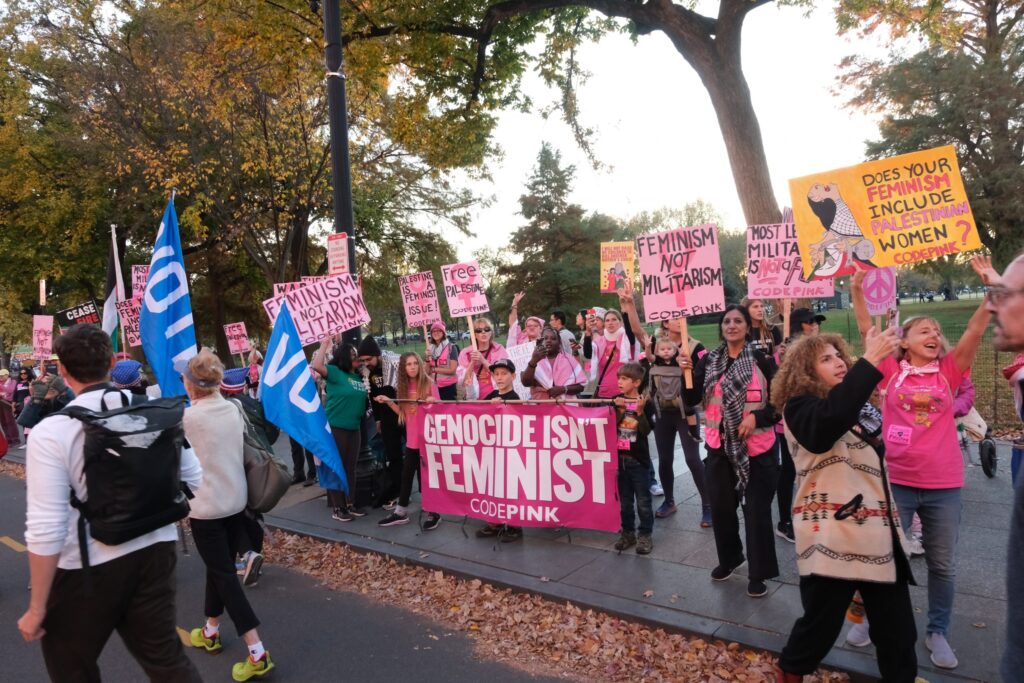
Photo by Sydney Carroll A group of protesters gather as part of the “CODEPINK” campaign.Photo by Sydney Carroll
Some demonstrators carried signs in support of Palestinian liberation. One group wore pink as part of “CODEPINK,” a Pro-Palestine organization that also advocates against war and militarism. They carried a banner reading, “Genocide isn’t feminist.”
After the speeches, demonstrators began to march from Freedom Plaza down Pennsylvania Avenue toward the Washington Monument, before ending the rally at the Ellipse, where Harris gave a campaign speech earlier that week. Overlooking the White House, organizers and demonstrators chanted and posed for photos. The rally at the Ellipse also featured a performance from Bátala Washington D.C., an all-female Afro-Brazilian percussion band.
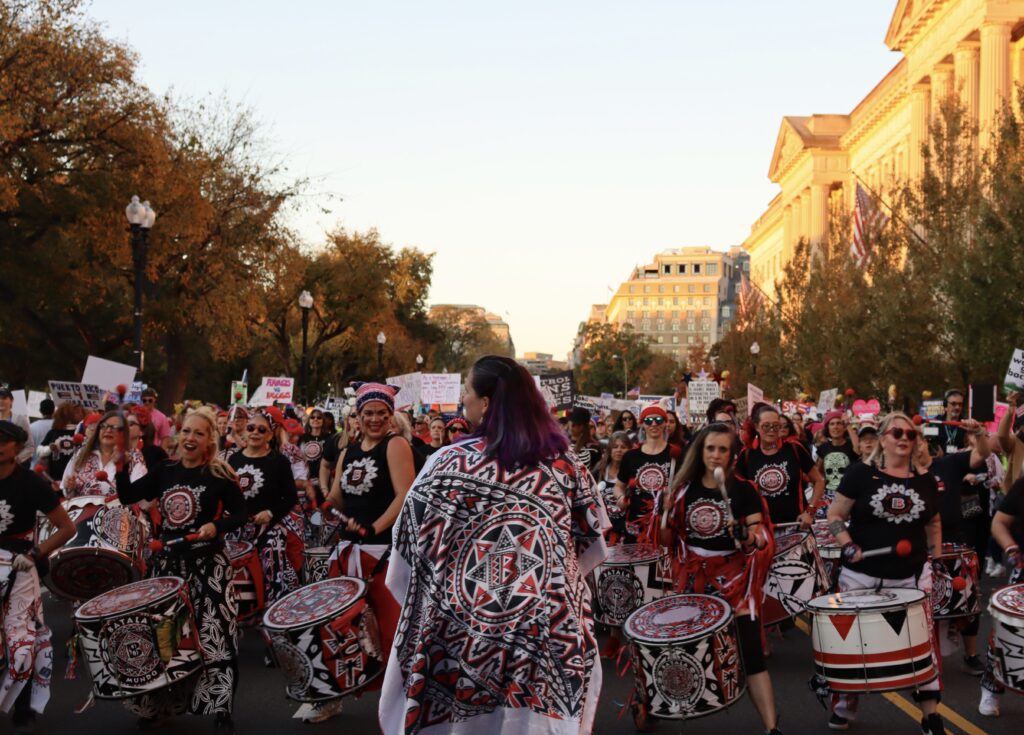
Photo by Katie Doran Bátala Washington D.C. performing in the march.Photo by Katie Doran
Jess Herzog and her friends drove from Spartanburg, South Carolina to attend the demonstration. For Herzog, it wasn’t just her first time at the Women’s March—it was also her first protest.
“It just feels like there’s too much at stake not to make an effort,” Herzog told the Voice. “Being where we’re from, you don’t always get to be around like-minded people, and this feels like a really safe space to express my opinions and perspectives and know that I’m not going to get trampled for them.”
While the march was her first protest, Herzog also emphasized that protests aren’t the only way to create change, and she encouraged people to get involved on the local level.
“There are so many different ways to get involved,” Herzog said. “You can get involved with your local politicians, that’s so important, particularly in the South, but everywhere, really. Putting stamps on mailers, and handling stuff on social media—it doesn’t have to be loud and proud, but there are ways to still get involved that feel small but make a big impact.”
Many speakers said that seeing such a crowd turn out for the march made them feel optimistic and inspired.
“Sometimes when I think about being in a country where a despotic, rapist, narcissist has a chance at the presidency—not once, but twice—fear and despair try to creep in. But then I get to see all of you, and I remember what hope feels like,” Tamika Middleton, Managing Director of the Women’s March, said. “It is because of you that I know that a feminist future is possible.”


